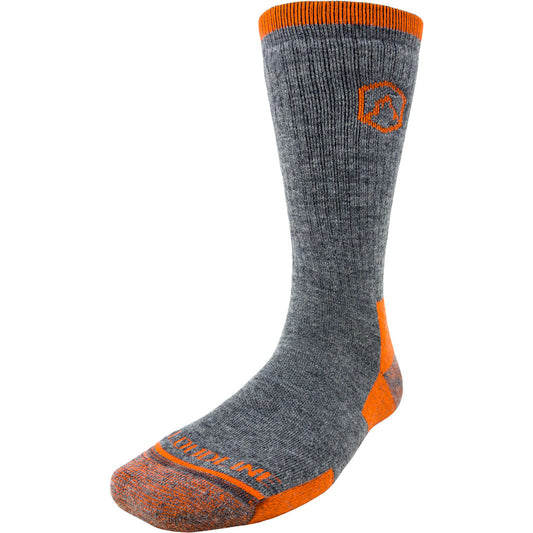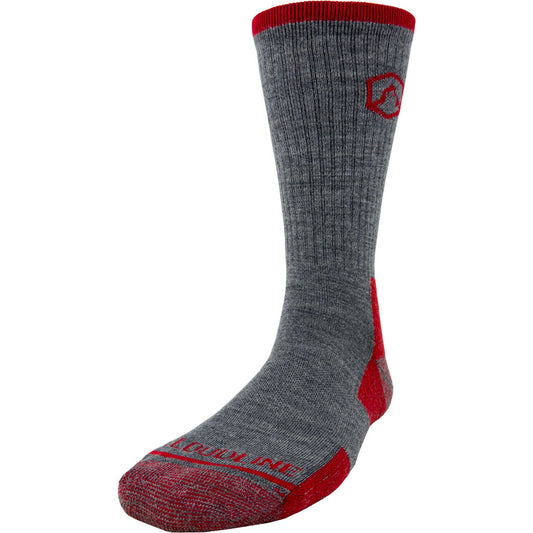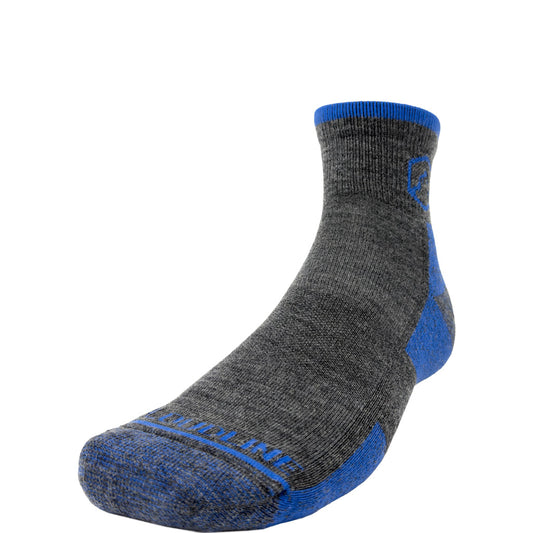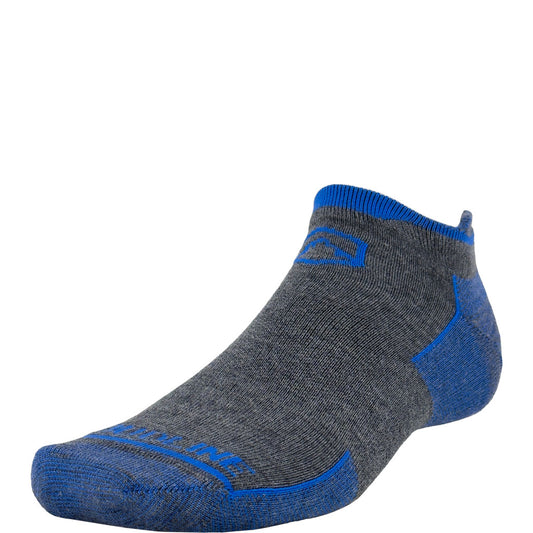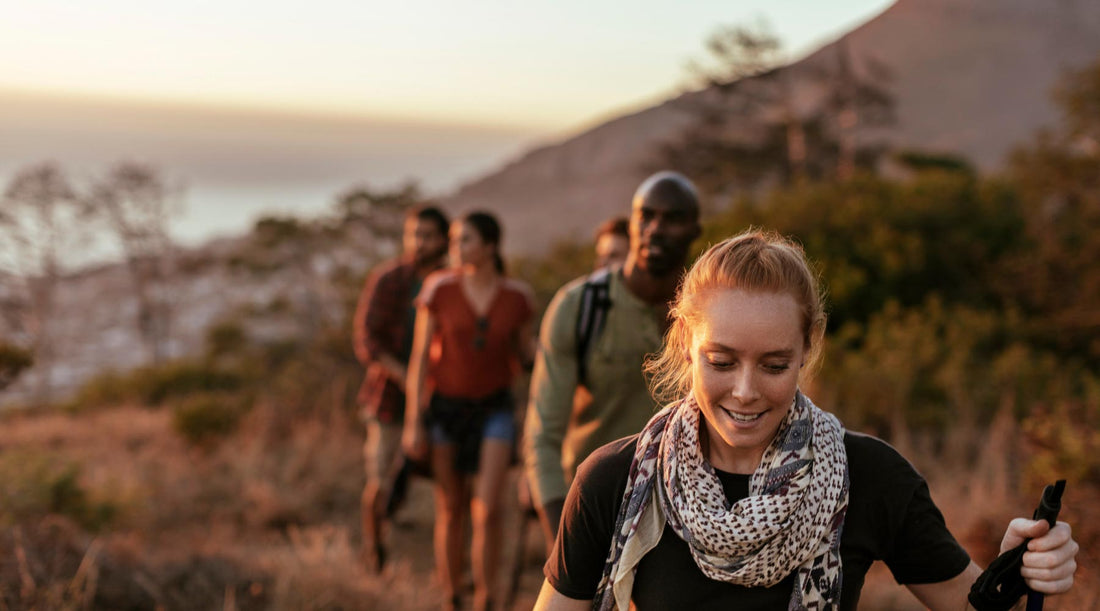
How to Beat the Heat, Stay Hydrated, and Avoid the Bugs While Hiking
With long days, abundant sunshine, and fair weather, summer is a great time to hit the trails and hike. Snow is long gone, the trails are in good condition, and better weather makes for easier travel. There’s nothing like a full, sunny day on the trail, punctuated by a dip in a remote and refreshing lake.
Until that is, you forget to prepare for the sun, you get eaten alive by bugs, or you neglect to bring enough water for your hike. That’s when an idyllic summer day quickly turns into an unpleasant — or even dangerous — adventure.
While you can’t control everything you encounter on the trail, you can prepare for these summer nuisances with a little bit of planning. Don’t let the bugs, the heat, or the sun get you down this summer — instead, enjoy the trail all season long with the following tips.
Protect Yourself from the Sun

One of the biggest threats on a summer hike is getting that dreaded, painful sunburn. Depending on the length of your hike, you may be in the sun for the majority of the day.
Take sun protection seriously wherever you hike — but take extra caution if hiking at high altitude. The higher in elevation you are, the more direct and powerful the sunlight is. Keep this in mind if you’re hiking in the mountains.
Start with a good sunscreen that offers “broad spectrum” sun protection. The label “broad spectrum” refers to the sunscreen’s ability to block UVA and UVB rays, which are both dangerous. No matter what type of sunscreen you’re using or what the SPF is, you should reapply every two hours. It’s also a good idea to choose a water-resistant sunscreen since you’ll likely be sweating throughout your hike.
You should also protect your skin with your clothes and accessories. Sunglasses, a hat, a buff, and a sun hoody are all great things to wear or keep in your pack.
Manage Your Sweat

While sweat can simply be a stinky nuisance, sometimes it can have more detrimental effects. If you’ve ever suffered from blisters after a long, sweaty hike, you know exactly what we mean.
Whether you want to address the funk of a sweat-soaked T-shirt or you’re keen on avoiding painful blisters, managing sweat will make your summer hikes more pleasant. Here’s how:
First, wear the right clothes. Low-quality polyester and nylon begin to smell bad quickly when you sweat. On the other hand, wool, bamboo, and linen have antibacterial properties and naturally resist odors. These materials also wick away your sweat so it doesn’t linger, stink, and feel wet against your skin. Try our merino wool base layer to stay cool and keep odors under control.
Make sure you wear the right socks, too. Wearing moisture-wicking socks is crucial to keeping your feet dry and blister-free. Merino wool socks are a great choice — they’re breathable, moisture-wicking, and odor-resistant.
As backpackers know, there’s a point when even wool socks begin to smell. Typically, this is because of buildup on your socks — which you can mitigate with a few simple actions:
- When you find yourself with downtime, let your gear air out. While at camp, switch out your socks and let the sweaty ones dry in the sun. (You can even wash them in a nearby water source first).
- Look for special detergents to protect from odors, like NikWax’s Basewash. Or try all organic detergents to prevent buildup.
- Use plain vinegar in your load of laundry to deep-clean your socks and remove odors.
Beat the Bugs

Bugs can be a pesky annoyance or a total buzzkill (pun intended). Mosquitos, biting flies, and ticks are just some of the insects you hope not to encounter on the trail. And while you can’t avoid them entirely, you can take action to keep the bugs at bay and protect yourself from uncomfortable bites.
In order to best avoid bugs on the trail, try to avoid wearing anything heavily scented. Use unscented soaps, shampoos, and deodorants hiking or camping.
Wear light-colored clothing and opt for as much coverage as possible. A long-sleeved shirt, a sun hoody, pants, and tall socks provide a lot of coverage and protection from bugs. Plus, they tend to be attracted to darker-colored clothing, so avoid it when possible.
If you’re hiking during peak bug season (check local guides or ask rangers to find out when this is), avoid trails through wet, swampy areas or near standing water.
And finally, use bug repellent. Some hikers favor DEET while others use natural repellents. DEET is the strongest option and can break down waterproof materials, so use it sparingly. You can also buy clothing that’s treated with bug repellent. This might be helpful if you’re spending an extended period of time in really buggy areas.
Check for ticks

Unfortunately, ticks are becoming more and more prevalent across the country. It’s more important than ever to check for ticks after you finish a hike.
Showering is the best way to check for ticks and wash them away. Be sure to pay extra attention to places where ticks could find a dark hiding spot — think near your ears, armpits, groin, and in your hair. Washing your clothes is a great way to get rid of any ticks that may have hitched a ride.
Stay Hydrated and Fed on the Trail

Between the heat, sun, and physical activity, summer hiking can quickly lead to dehydration. Use the following tips to make sure you’re staying hydrated and fed throughout your summer hikes:
First, make sure you bring enough water (or have a way to filter or treat water if you know you can’t carry enough). Bring at least half a liter per hour on the trail — but in hot, sunny conditions, you should bring more. The more you hike, the more you’ll get a sense of how much water you need in different conditions.
Second, make hydration convenient. If you don’t like to stop for breaks along the trail, use a hydration reservoir and straw so you can hydrate on the go.
As much as dehydration is a concern, so is overhydration. It’s important to replace the electrolytes that you lose when you sweat. A good way to do this is to bring a sports drink mix to add to your water. Eat salty snacks throughout your hike to help replenish your body’s sodium levels. And make sure you bring plenty of food to keep up your energy throughout the duration of your hike.
Hike Happy This Summer
Armed with the right gear and knowledge, you can beat the sluggishness, sweat, and sunburns of underprepared summer hiking. Enjoy your adventures, and happy summer!
Want more tips for the trail and Cloudline news? Sign up for our email list and you’ll get deals, new blog posts, and more delivered straight to your inbox.

